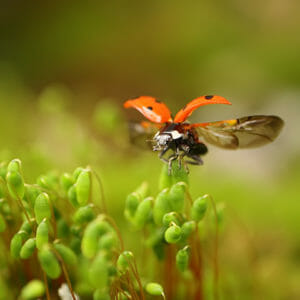In spring 2021, ASU School of Music, Dance and Theater Professor Liz Lerman and School of Life Sciences Professor Becket Sterner will be teaching a multidisciplinary course titled “Creative Tools for Saving Biodiversity.”
Why are they teaching this class?
Life on Earth has entered a sixth mass extinction, driven by pervasive human impact on the global environment. Even the most common species, such as many insect pollinators, have experienced precipitous declines in their populations over the past few decades.
Preserving what remains demands unprecedented action across political, cultural and disciplinary boundaries.
Wicked problems, as characterized by Horst Rittel (1973), are a class of social problems that resist definitive formulation, lack consensus criteria for recognizing and evaluating possible solutions, are subject to conflicting moral perspectives and cannot be isolated as stable phenomena for study, among other features.
Indeed, researchers have come to identify many of the most important challenges we collectively face today as wicked problems, including climate change, health inequality and ecosystem management.
These kinds of challenges are exactly why artists and scientists need to come together.
For many people, problems of this scale and complexity often lead to personal responses of passive despair or panic rather than the radically creative action required by the situation.
Holding ambiguity and paradox, managing different moral frameworks and engaging more than one definition of things are all core aspects of interdisciplinary training and practice that make their way into the Atlas of Creative Tools.
Interdisciplinary skills and ethos, however, are commonly overlooked or set aside as outside the scope of what students learn in their majors or graduate research specializations.
This course (HDA/HPS/BIO 494/598) will be taught on Fridays, from 10:45 a.m. to 1:45 p.m. via ASU Sync.
